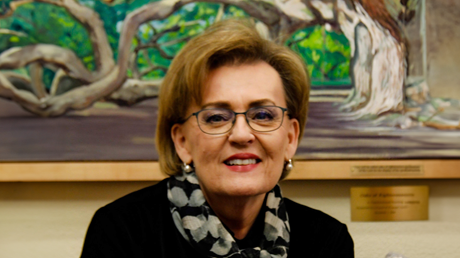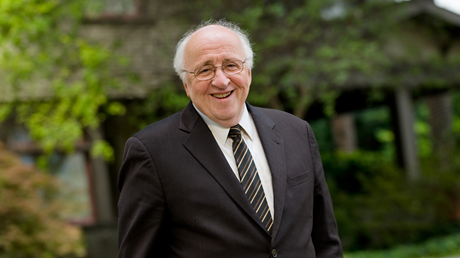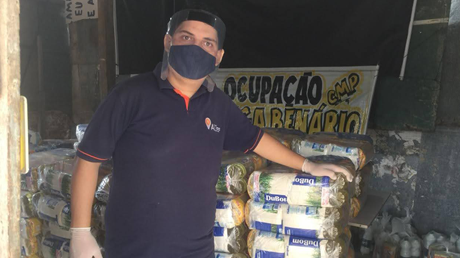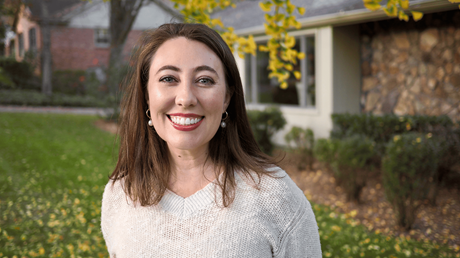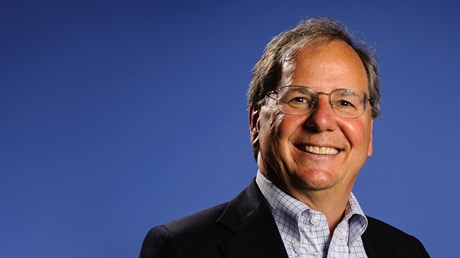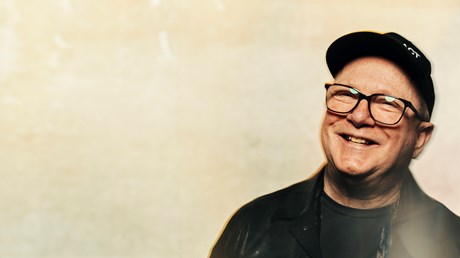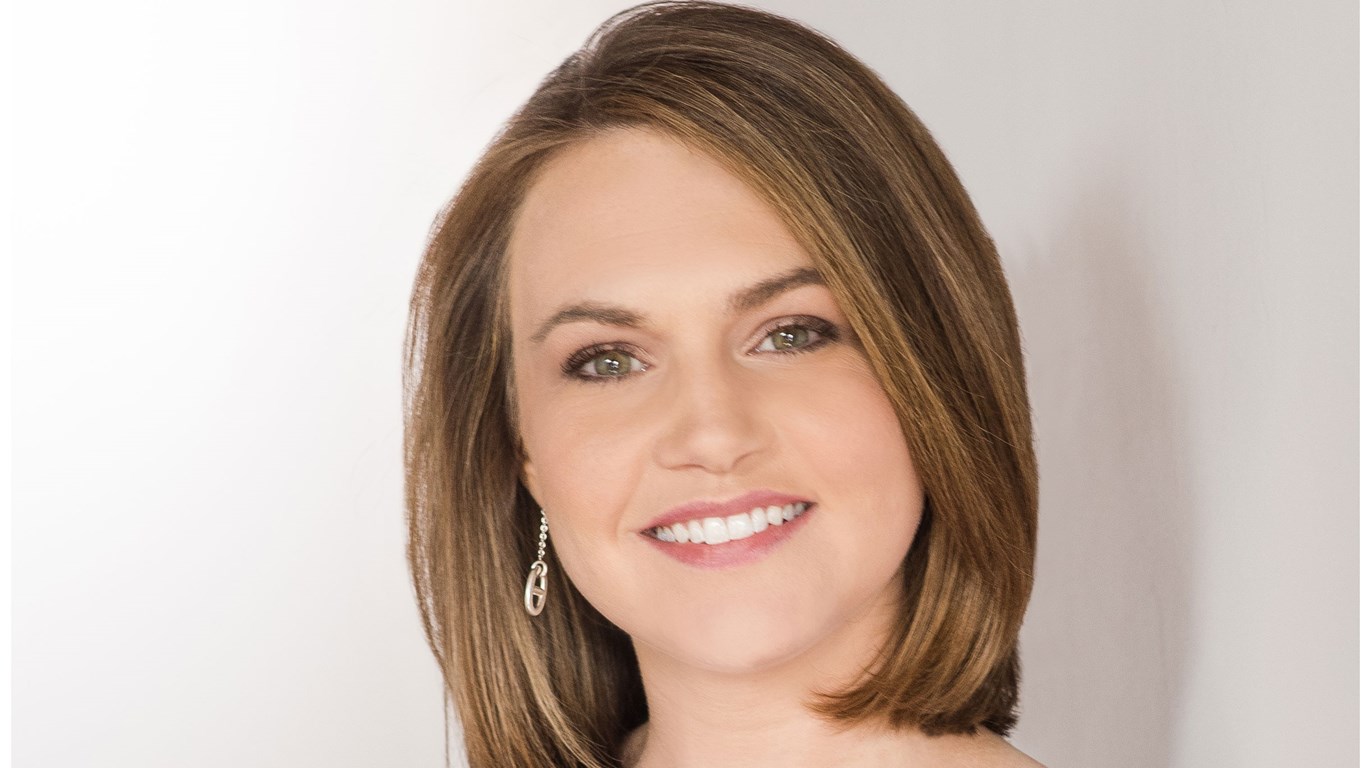
Will you help encourage and connect the church?
Give NowWill you help encourage and connect the church?
Give NowAs a communications consultant, Jill Anschutz believes she has a responsibility to discern how her ideas shape her community. Because marketing shapes how a community thinks about a product or company, the marketer is in a position of power. “There might be ways I don’t want the community to be shaped. Maybe a client wants to run a campaign around an idea, and the idea would be persuasive, but it’s not 100% true. I don’t want my client to use that idea.” In that way, Jill, who has been a regular reader of CT for five years, shares the same drive as the magazine and ministry: when helping people think through a topic, no matter how controversial, CT wants to frame it with grace and truth, “I appreciate that when CT covers a complicated issue, the magazine doesn’t lose sight of that faith lens.”
Jill has a strong sense of how her vocation impacts her community, but that was not always the case. After majoring in media, she figured bringing her skills to a Christian ministry was really the main way to shape the world. So she moved to Denver after graduating college to take a communications job at a Christian nonprofit, “I used to think that your sense of purpose in work simply came from working for an organization that was Christian or somehow mission-oriented.” Jill quickly realized she was doing the same work that she could be doing at any organization, and the Christian mission of the organization did little to affect that work. “That was the beginning of a faith and work journey for me.”
Jill pivoted significantly and started working for a consulting firm that specialized in clients who were shaping public opinion. This job offered her the opportunity to learn more about Denver, specifically who the influential organizations and leaders were, which she loved. But it also helped her test out her hypothesis that the mission of an organization didn’t matter very much in shaping your sense of purpose in your work. Instead, she found that the culture was shaped the most by the managers. Consulting is typically a highly competitive work environment, but Jill’s company actively combatted that stereotype. She recalled that after another woman was hired for a similar job in her department, the owner of the company took her out to lunch to reassure her that there was enough work to go around.
“That interpersonal element impacted me early on. When I actually got to the place where I had some influence over how work was distributed and how feedback was given to employees, I did it differently. Instead of doing one dump of feedback yearly on what could be improved, I gave continuous feedback. Ultimately I saw that approach trickle through other leaders and it changed the way they communicated with their team. It helped to shape the company.” In turn, this experience shaped Jill’s understanding of work: that it’s the single greatest way God allows us to shape the world, both through the direct impact you have on your fellow employees and those you manage, and in the excellence of the work you produce which shapes the culture around you.
In part, this faith and work journey led her to a job at the Denver Institute for Faith and Work, an organization that aims to help churches and congregants paint a vision for how work in the for-profit sector can shape the world. The job also brought her into the CT orbit, since the organization has partnered with the magazine around the faith and work conversation, “CT is the publication that covers what a wide range of evangelical Christians are thinking and talking about, so I think it was a natural fit for the Denver Institute to partner with CT to share some of its teaching.”
For Jill, much of this meaning in work comes from following the biblical calling to “love your neighbor”, from your physical neighbors, to fellow employees, to those in your community who you wouldn’t normally meet through work or church. Jill was able to use her experience with organizations around the city to assess who was doing the most good, and this assessment ultimately led her to start volunteering with public charter schools around the city, even though she doesn’t currently have children and didn’t attend public school herself. “I know so many families and kids that I never would have known through church or work.”
Some of this same thinking caused Jill to start reading CT regularly: she wanted to get proximate to the conversations happening among evangelicals as a whole, not just the ones in her sphere. “Through the voices CT includes in its pages, it curates the conversation and boundaries that define 'evangelicalism', and what that means for society today."
Being tapped into the pulse of what evangelicals were thinking and saying was important to Jill as she wrestled through her identity as an evangelical in college at Taylor University. Having attended non-denominational churches her whole life, she can remember lamenting to a professor that she wasn’t sure what it even meant to be an evangelical and whether she wanted to identify with this group at all. CT helped her figure out the boundaries of evangelical thought, which was especially important for Jill after the 2016 election, and this clarity led her to become a CT donor. “I specifically gave my gift to encourage CT because I share the big-tent view of evangelicalism: there’s a lot of different denominations and different people that fall into that category and there’s no official political party for evangelicals.” She specifically appreciated that CT writes in a non-partisan way, but can still make a decisive and bold statement when necessary.
Additionally, Jill has appreciated CT’s coverage on the topic of faith and work, specifically an article about blue collar workers and their relationship to the faith and work conversation, a conversation that often excludes these individuals. “Blue collar workers often have less agency in shaping the particular company that they’re working for, but they make up the majority of the workers. I was really challenged by that.” She says the article has taken on a particular resonance during COVID-19, when these workers are the ones who are often unable to say they don’t want to go into work because of the risk.
“I think about the ideas from that article regularly when I’m out and about in the world. Even before COVID it made me much more aware of grocery store workers, and now I’m more prone to ask someone how their day is. In particular, I always try to visit this one woman’s checkout line and I know a little bit about her now. I know she’s getting a master’s degree and this is the most flexible job she could find to work around her school schedule.”
Articles like this draw Jill deeper into her community in Denver, and help her love the evangelical community more broadly, as she discovers other people concerned about the same kinds of topics she is, “CT is a voice that represents a lot of evangelicals and what they’re thinking about. Even though it’s a pretty dispersed community, CT helps me feel more a part of it.”
Katie Bracy is digital marketing specialist at Christianity Today.


